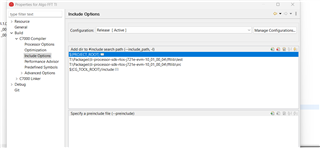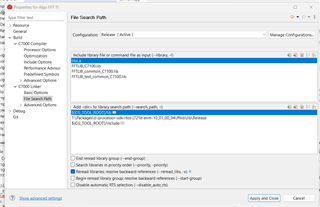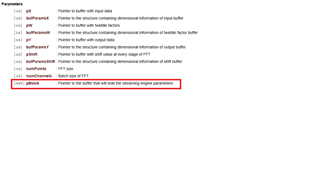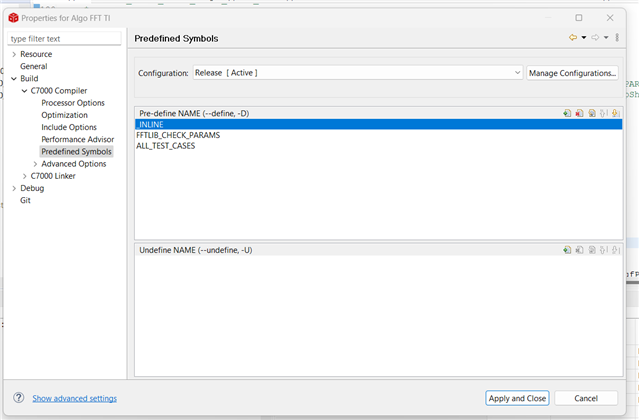Other Parts Discussed in Thread: FFTLIB
Tool/software:
Hi TI,
I would like to implement an FFT algorithm on the C7x DSP using CCS. To do so, I am using code from the FFTlib provided by TI. However, I am encountering issues determining which code I could use to run an FFT algorithm. In my understanding, most of the code is only for configuring the kernel for an FFT algorithm, but it doesn't contain the FFT algorithm itself.
Could someone tell me which file(s) I could use from TI to meet my needs?
Regards,
Mélanie








